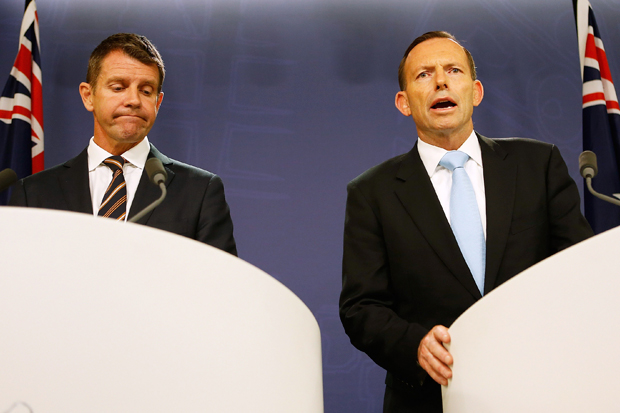Business and Politics don’t mix? They do if you’re a professional lobbyist who is also a Liberal Party factional leader with the power to influence (and sometimes overtly control) the selection of members of parliament who can then be approached on behalf of the lobbyist’s paying customers. And they do if you’re a ranking Labor politician whose ability to open political doors and influence people appeals to the big end of town where so many of them have found a comfortable corporate home after their political lives have run their course. But the Business Council of Australia can’t make up its mind whether it should dirty its hands in the political muckheap. As the representative of the corporations whose proposed tax cuts ended up on the backburner when the government lost this political battle for public hearts and minds in the recent federal election, several corporate leaders reckon some of the blame rests on the BCA’s ineffective public support for the Turnbull government’s economically essential proposals. At next month’s AGM of Australia’s peak business organisation, members will not only be deciding who will replace retiring Catherine Livingstone to lead the BCA, but also what the next leader’s role should be. There is much unhappiness about the BCA’s ‘lack of understanding of how to influence the workings of the political class for the benefit of business – and therefore of the overall economy’. (What’s good for General Motors…).
With political stability high on corporate Australia’s wish list, another AGM to take place this weekend could have a significant impact on the survival prospects of the Turnbull coalition government. Listed ridiculously low on a lengthy agenda for Saturday’s AGM of the State Council of the NSW Division of the Liberal Party is a vital motion seeking urgent major reforms to remove the power to select candidates from lobbyist-dominated factions and give it to grass roots members of the party by way of plebiscites. With current and surviving former Liberal Prime Ministers Malcolm Tunbull, John Howard and Tony Abbott, and NSW Premiers Michael Baird and Barry O’Farrell publicly supporting the principle involved in this ‘democratising’ of the party, Saturday will demonstrate whether the corrupted and manipulated pyramid structure of the NSW Liberal Party will enable the factional bosses to resist this proposed demolition of a system that has seen a collapse in party membership and a mounting voter disenchantment with the ‘political class’ that now dominates the party. As Turnbull government minister Angus Taylor told last weekend’s meeting of 500 supporters of Democratic Reform, the absence of a state or federal election for two years provides a vital opportunity to act to reverse the downward spiral that threatens the government’s survival.
The impact of disenchantment with NSW Liberals is in striking contrast to the resurgent Victorian division which is now reaping the benefits (like winning a seat while NSW lost seven in the recent election) of the very reform that NSW has been resisting for two years by sidelining the recommendations of an expert committee led by former PM John Howard. As Malcolm Turnbull told the meeting via video, when he joined the party in 1972, the NSW division was six or seven times larger than the 8,000 of today. And Victorian executive member, Marcus Bastiaan, warned that ‘union or lobbyist domination of governments leads to broad-based supporter disenchantment, political cronyism and widespread voter disillusionment’. That is why the number of Australians who either simply avoided voting or voted informal soared by 72 per cent from 1.22 million with Kevin ‘07 to 2.11 million this year. On top of that, the Electoral Commission says 800,000 who were entitled to register to vote, failed to do so. Without reform, worse is coming; in 2007, Labor and the coalition got all but 15 per cent of first preference votes but this year ‘others’ jumped by more than half to 23 per cent as both Labor and Liberal are increasingly on the nose. It is no coincidence that this year’s loss of NSW’s Lindsay to Labor by 1.1 per cent, involved the highest national informal vote of 11.77 per cent; this was clearly ‘a pox on both their houses’. Reform is the only cure.
The post Business/Robbery etc appeared first on The Spectator.
Got something to add? Join the discussion and comment below.
Get 10 issues for just $10
Subscribe to The Spectator Australia today for the next 10 magazine issues, plus full online access, for just $10.
You might disagree with half of it, but you’ll enjoy reading all of it. Try your first month for free, then just $2 a week for the remainder of your first year.














Comments
Don't miss out
Join the conversation with other Spectator Australia readers. Subscribe to leave a comment.
SUBSCRIBEAlready a subscriber? Log in